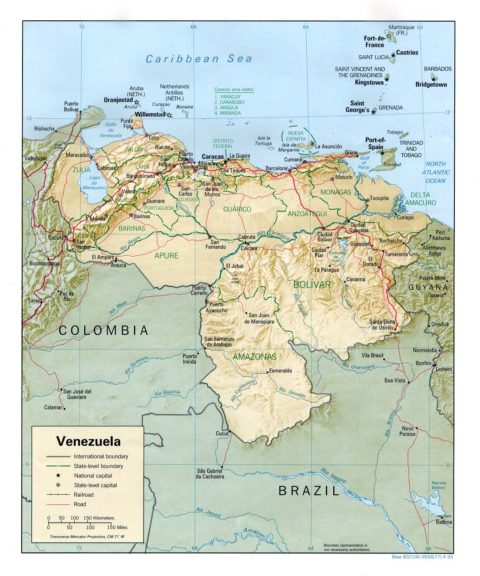In the Los Angeles Times, James Kirchick took the pundits to task for their adulation of Venezuela’s government as it plunged deliberately into a humanitarian disaster:
On Sunday, Venezuelan President Nicolas Maduro claimed victory in a referendum designed to rewrite the country’s constitution and confer on him dictatorial powers. The sham vote, boycotted by the opposition, was but the latest stage in the “Bolivarian Revolution” launched by Maduro’s predecessor, the late Hugo Chavez. First elected in 1998 on a wave of popular goodwill, Chavez’s legacy is one of utter devastation.Thanks to Chavismo’s vast social welfare schemes (initially buoyed by high oil prices), cronyism and corruption, a country that once boasted massive budget surpluses is today the world’s most indebted. Contraction in per capita GDP is so severe that “Venezuela’s economic catastrophe dwarfs any in the history of the U.S., Western Europe or the rest of Latin America” according to Ricardo Hausmann, former chief economist of the Inter-American Development Bank. Transparency International lists Venezuela as the only country in the Americas among the world’s 10 most corrupt.
Socialist economic policies — price controls, factory nationalizations, government takeovers of food distribution and the like — have real human costs. Eighty percent of Venezuelan bakeries don’t have flour. Eleven percent of children under 5 are malnourished, infant mortality has increased by 30% and maternal mortality is up 66%. The Maduro regime has met protests against its misrule with violence. More than 100 people have died in anti-government demonstrations and thousands have been arrested. Loyal police officers are rewarded with rolls of toilet paper.
The list of Western leftists who once sang the Venezuelan government’s praises is long, and Naomi Klein figures near the top.
In 2004, she signed a petition headlined, “We would vote for Hugo Chavez.” Three years later, she lauded Venezuela as a place where “citizens had renewed their faith in the power of democracy to improve their lives.” In her 2007 book, The Shock Doctrine, she portrayed capitalism as a sort of global conspiracy that instigates financial crises and exploits poor countries in the wake of natural disasters. But Klein declared that Venezuela had been rendered immune to the “shocks” administered by free market fundamentalists thanks to Chavez’s “21st Century Socialism,” which had created “a zone of relative economic calm and predictability.”
Chavez’s untimely death from cancer in 2013 saw an outpouring of grief from the global left. The caudillo “demonstrated that it is possible to resist the neo-liberal dogma that holds sway over much of humanity,” wrote British journalist Owen Jones. “I mourn a great hero to the majority of his people,” said Oliver Stone, who would go on to replace Chavez with Vladimir Putin as the object of his twisted affection.




